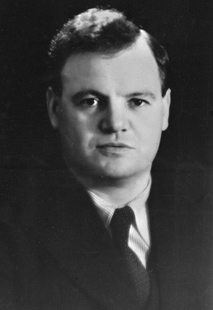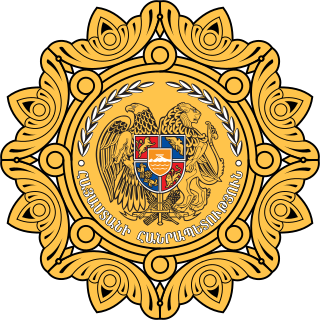Related Research Articles
A constitutional amendment is a modification of the constitution of a polity, organization or other type of entity. Amendments are often interwoven into the relevant sections of an existing constitution, directly altering the text. Conversely, they can be appended to the constitution as supplemental additions (codicils), thus changing the frame of government without altering the existing text of the document.
A constituent assembly or constitutional assembly is a body or assembly of popularly elected representatives composed for the purpose of drafting or adopting a constitutional-type document. The constituent assembly is a subset of a constitutional convention elected entirely by popular vote; that is, all constituent assemblies are constitutional conventions, but a constitutional convention is not necessarily a constituent assembly. As the fundamental document constituting a state, a constitution cannot normally be modified or amended by the state's normal legislative procedures; instead a constitutional convention or a constituent assembly, the rules for which are normally laid down in the constitution, must be set up. A constituent assembly is usually set up for its specific purpose, which it carries out in a relatively short time, after which the assembly is dissolved. A constituent assembly is a form of representative democracy.

The National Assembly, is the unicameral legislature of Kuwait. The National Assembly meets in Kuwait City. Members are chosen through direct election; the country is divided into five electoral districts with ten members representing each district. There are no official political parties in Kuwait, therefore candidates run as independents during elections; upon winning, members usually form informal parliamentary blocs. The National Assembly is made up of 50 elected members as well as up to 15 appointed government ministers who are ex officio members. On October 16, 2016, the Amir of Kuwait issued a decree dissolving the National Assembly citing security challenges, paving the way for early elections, which were held on November 26, 2016.

Elections in Zambia take place within the framework of a multi-party democracy and a presidential system. The President and National Assembly are simultaneously elected for five-year terms.

The Prime Minister of the Kingdom of Cambodia is the head of government of Cambodia. The prime minister is also the chairman of the Cabinet and leads the executive branch of the Royal Cambodian Government. The prime minister is required to be a member of parliament, and is appointed by the monarch for a term of five years. Since 1945, 36 individuals have served as prime minister.

The First Constitutional Era of the Ottoman Empire was the period of constitutional monarchy from the promulgation of the Kanûn-ı Esâsî, written by members of the Young Ottomans, that began on 23 December 1876 and lasted until 14 February 1878. These Young Ottomans were dissatisfied by the Tanzimat and instead pushed for a constitutional government similar to that in Europe. The constitutional period started with the dethroning of Sultan Abdülaziz. Abdul Hamid II took his place as Sultan. The era ended with the suspension of the Ottoman Parliament and the constitution by Sultan Abdul Hamid II, with which he restored his own absolute monarchy.

The Provisional Government of the French Republic was an interim government of Free France between 1944 and 1946 following the liberation of continental France after Operations Overlord and Dragoon, and lasted until the establishment of the French Fourth Republic. Its establishment marked the official restoration and re-establishment of a provisional French Republic, assuring continuity with the defunct French Third Republic.

The State Constitution of the Republic of Indonesia of 1945 is the basis for the government of Indonesia.
The Cuban Revolutionary Party – Authentic, commonly named Authentic Party, was a political party in Cuba most active between 1933 and 1952. Although the Partido Auténtico had significant influence, it eventually became unpopular and, despite significant reforms, Fulgencio Batista returned to power.

Legislative elections were held in France on 21 October 1945 to elect a Constituent Assembly to draft a constitution for a Fourth French Republic. 79.83% of voters participated. Women and soldiers were allowed to vote. 522 seats were elected through proportional representation.

The Parliament of Yugoslavia was the deliberative body of Yugoslavia. Before World War II in the Kingdom of Yugoslavia it was known as the National Assembly, while in the Socialist Federal Republic of Yugoslavia the name was changed to Federal Assembly. It was the official deliberative body of the Yugoslav state, which existed from 1918 to 1992 and resided in the building which now convenes the National Assembly of Serbia.

Constitutional Assembly elections were held in Bulgaria on 27 October 1946. The elections served to elect members to the 6th Grand National Assembly, tasked with adopting a new constitution. The Fatherland Front, an anti-fascist coalition dominated by the Bulgarian Communist Party, had come to power in 1944 following a coup. Now that the Second World War was over and the monarchy abolished the communists wanted to adopt a new constitution. The Communists won a large majority, with 53.5 percent of the vote and 278 of the 465 seats. Voter turnout was 92.6%. This would be the lowest vote share that the Communists or the Fatherland Front would claim during the 43 years of undisguised Communist rule in Bulgaria. In subsequent years, the Fatherland Front would claim to win elections with unanimous or near-unanimous support.

The 1944 New York state election was held on November 7, 1944, to elect a judge of the New York Court of Appeals and a U.S. senator, as well as all members of the New York State Assembly and the New York State Senate.
The Republic of Panama held a parliamentary election on 5 May 1945, electing a Constitutional Assembly.

Constitutional Assembly elections were held in the Dominican Republic on 1 June 1929. The role of the Assembly was to review and amend certain articles of the constitution, which resulted in an amendment to repeal the ban on presidential re-elections. Voter turnout was low and in some places ballots were not even counted.

The President of Armenia is the head of state and the guarantor of independence and territorial integrity of Armenia elected to a single seven year term by the National Assembly of Armenia. Under Armenia's parliamentary system, the President is simply a figurehead and holds ceremonial duties, with most of the political power vested in the Parliament and Prime Minister.

The Legislative Assembly of Delhi, also known as Delhi Vidhan Sabha, is a unicameral law making body of the National Capital Territory of Delhi, one of the 7 union territories in India. It is situated at Delhi, the state capital of Delhi, with 70 Members of the Legislative Assembly (MLA).

Gil Rémillard is a Canadian professor and politician.
The 1909 Chinese Provincial Assembly elections were held to elect the members of the Provincial Assemblies of China in April and June 1909 as part of the New Policies under the Qing government as a move toward constitutional monarchy. The Provincial Assemblies were convened on 14 October 1909 and were responsible for electing half of the members of the National Assembly convened subsequently in 1910. The assemblies survived until the fall of the Qing dynasty in 1912 after the Hsinhai Revolution.
References
- ↑ Leonard, Thomas M. The United States and Central America, 1944-1949: perceptions of political dynamics. Tuscaloosa: The University of Alabama Press. 1984. Pp. 85.